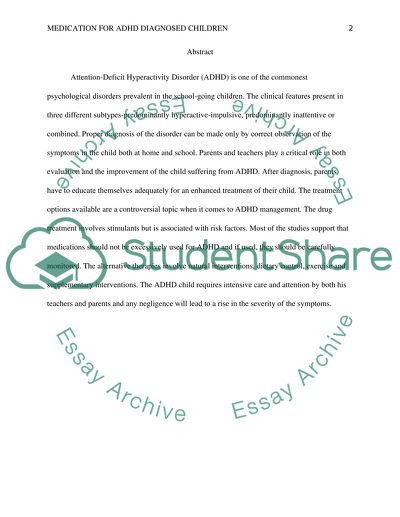Should Children Diagnosed with ADHD be given Medication to address Research Paper. Retrieved from https://studentshare.org/psychology/1450538-should-children-diagnosed-with-adhd-be-given
Should Children Diagnosed With ADHD Be Given Medication to Address Research Paper. https://studentshare.org/psychology/1450538-should-children-diagnosed-with-adhd-be-given.


